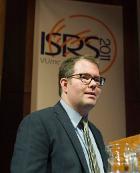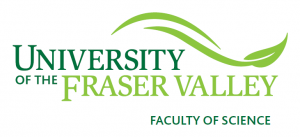The Faculty of Science is pleased to welcome Dr. James Inkster, Research Fellow, Department of Radiology from Boston’s Children’s Hospital, Harvard Medical School as part of our Dean’s Seminar Series.
“Looking inside the body without a knife: Developing novel probes for medical imaging – the case for 18F-labelled Rhodamines”
WHEN: Thursday, June 6th
TIME: 10:30 – 11:30 AM
WHERE: D215, Abbotsford Campus
Everyone is welcome to attend!
ABSTRACT
Assessing heart function before the patient has a serious cardiac event is a significant diagnostic challenge. To help with this assessment, scientists have developed techniques such as Positron Emission Tomography or “PET scanning” to look at organ and tissue function non-invasively. PET scans use special dyes that are specific to the tissues that are the target of the study. These dyes contain radioactive tracers that allow images of their distribution in the body to be obtained using special imaging devices that can detect the radiation emitted by the dyes. PET imaging agents are currently available for several diseases. For example, glucose labelled with the isotope fluorine-18 (18F) can be used to image tumors. These imaging agents are not, however, available for imaging all organs that are clinically important.
Dr. Inkster is involved in a research team that is developing novel PET agents to measure blood flow to the heart as well as other non-cardiac applications. In addition, PET imaging might also be useful for the detection of bacterial infections such as tuberculosis, which would be of great value in indigenous and pediatric populations. This talk will give us a peek inside the molecular imaging world.
BIOGRAPHY
 Originally from the town of La Ronge in Northern Saskatchewan, Dr. Inkster attended the University of Saskatchewan, where he graduated with a BSc in Chemistry (Hons.) in 1999. After graduation he taught ESL in Taiwan for a year, then returned to Canada to take a Master’s Degree in Prof. Erika Plettner’s lab at Simon Fraser University. His Master’s thesis described the synthesis of gypsy moth pheromone analogues for use as species-specific pesticides, and after graduating in 2003 he worked as a Research Assistant in the insect chemical ecology lab of Prof. John Borden. In 2005 he began a successful appointment as a Research Associate at TRIUMF, Canada’s National Lab for Nuclear and Particle Physics. Under the guidance of Life Sciences Director Dr. Tom Ruth and Head of Chemistry Dr. Mike Adam, he developed a long-standing interest in positron emission tomography (PET, a nuclear diagnostic imaging technique), and the design of PET radiopharmaceuticals. His primary area of research involved the synthesis of novel 18F-labelled peptides and oligonucleotides for the in vivo imaging of cancer-specific biomarkers. From 2009-2013 he completed a PhD in Chemistry at SFU under Dr. Ruth and Prof. Tim Storr, although his research was carried out at TRIUMF and the BC Cancer Research Centre. His experience in the development of biomolecular PET tracers for cancer detection led to a post-doctoral appointment at Les Hôpitaux Universitaires de Genève in Switzerland under Prof. Yann Seimbille. Since 2015, Dr. James Inkster has held the positions of Research Associate in the Division of Nuclear Medicine & Molecular Imaging at Boston Children’s Hospital and Research Fellow in Radiology at Harvard Medical School. In Dr. Alan Packard’s Radiopharmaceutical Research Laboratory, he spearheads efforts to design novel PET probes for the diagnosis and assessment of cardiovascular disease and Parkinsonian disorders.
Originally from the town of La Ronge in Northern Saskatchewan, Dr. Inkster attended the University of Saskatchewan, where he graduated with a BSc in Chemistry (Hons.) in 1999. After graduation he taught ESL in Taiwan for a year, then returned to Canada to take a Master’s Degree in Prof. Erika Plettner’s lab at Simon Fraser University. His Master’s thesis described the synthesis of gypsy moth pheromone analogues for use as species-specific pesticides, and after graduating in 2003 he worked as a Research Assistant in the insect chemical ecology lab of Prof. John Borden. In 2005 he began a successful appointment as a Research Associate at TRIUMF, Canada’s National Lab for Nuclear and Particle Physics. Under the guidance of Life Sciences Director Dr. Tom Ruth and Head of Chemistry Dr. Mike Adam, he developed a long-standing interest in positron emission tomography (PET, a nuclear diagnostic imaging technique), and the design of PET radiopharmaceuticals. His primary area of research involved the synthesis of novel 18F-labelled peptides and oligonucleotides for the in vivo imaging of cancer-specific biomarkers. From 2009-2013 he completed a PhD in Chemistry at SFU under Dr. Ruth and Prof. Tim Storr, although his research was carried out at TRIUMF and the BC Cancer Research Centre. His experience in the development of biomolecular PET tracers for cancer detection led to a post-doctoral appointment at Les Hôpitaux Universitaires de Genève in Switzerland under Prof. Yann Seimbille. Since 2015, Dr. James Inkster has held the positions of Research Associate in the Division of Nuclear Medicine & Molecular Imaging at Boston Children’s Hospital and Research Fellow in Radiology at Harvard Medical School. In Dr. Alan Packard’s Radiopharmaceutical Research Laboratory, he spearheads efforts to design novel PET probes for the diagnosis and assessment of cardiovascular disease and Parkinsonian disorders.


